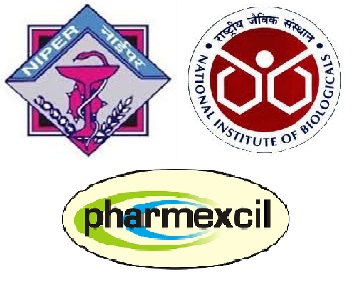NIPER, NIB and Pharmaexcil to jointly host workshop to upgrade skills of quality control professionals

In order to upgrade the skills of professionals in quality control, the National Institute of Pharmaceutical Education and Research (NIPER) Hyderabad in collaboration with National Institute of Biologicals (NIB) and Pharmexcil is organizing a workshop on “Pharmaceutical Quality Assurance and Quality Control (QA/QC)” between October 11 and October 13, 2019 (Module I) and October 18 and 20, 2019 (Module II) at NIPER Hyderabad.
This workshop will help in quality assurance, method development and method validation in pharmaceutical industries.
Discussions will focus on good manufacturing practices (GMP) and quality systems besides other areas like pharmaceutical “quality by design (QbD)”, quality management systems (QMS), good laboratory practices (GLP), lab compliance with reference to data management and data integrity, risk management in analytical methods, stability studies, impurity profiling and DMF filing.
The workshop is a relevant step as government has prioritised to implement uniform GMP standards for drug manufacturing industry ahead of joining the Pharmaceutical Inspection Cooperation Scheme (PICS).
PICS is a global mechanism to improve co-operation in GMPs between regulators.
Indian pharmaceutical industry has also urged the union health ministry to give suitable time frame to SMEs to adopt the new GMP draft guidelines before they are formed into norms looking into their requirements. This is a big move to help SMEs and domestic industry to upgrade to WHO-GMP standards.
The draft document details various requirements of premises, plant and equipment for manufacturing pharmaceutical products. GMP will be applicable to life-cycle stages from the manufacture of investigational medicinal products, technology transfer and commercial manufacturing to product discontinuation.
The quality system can extend to the drug development stage and shall facilitate innovation and continual improvement and strengthen the link between pharmaceutical development and manufacturing activity.
The GMP guidelines which need to be adopted as a part of the global harmonisation process will enhance the capacities of the domestic industry. It will also help them to participate in public healthcare tenders and help seek financial incentives from the government.
At present, while majority of small and medium manufacturers in India comply with Schedule M, only around 20 per cent of the firms meet WHO GMP norms, leading to dual standards of quality.
Source : pharmabiz


